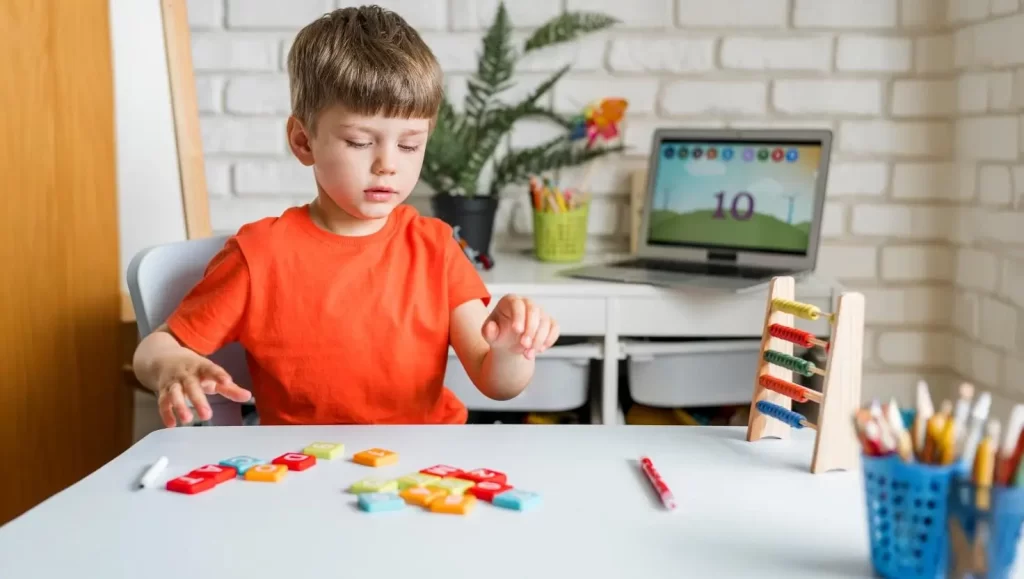
Parenting. It’s a word that evokes a whirlwind of emotions – joy, love, pride, but also a healthy dose of anxiety and overwhelm. Whether you’re holding a newborn in your arms, guiding a teenager through the maze of adolescence, or somewhere in between, one thing is clear: parenting in the 21st century is a unique and often perplexing experience. We’re bombarded with information (sometimes conflicting), societal expectations, and the ever-present glow of technology, all while trying to raise happy, healthy, and well-adjusted humans.
As parenting continues to evolve, traditional methods have given way to a more flexible and emotionally attuned approach. But what exactly does modern parenting entail?
Table of Contents
What is Modern Parenting?

Modern parenting isn’t a rigid set of rules, but rather an evolving philosophy. It’s characterized by a shift away from authoritarian models towards a more collaborative and child-centered approach. It prioritizes emotional intelligence, open communication, and fostering independence. Think connection over control. It’s about guiding, supporting, and empowering children to navigate a complex world.
To better understand where modern parenting stands today, it’s helpful to compare it with traditional parenting—the foundation upon which many of today’s approaches have been built. Let’s explore their key differences.
Modern Parenting vs Traditional Parenting: Main Differences
| Aspect | Traditional Parenting | Modern Day Parenting |
|---|---|---|
| Discipline | Strict, rule-based | Flexible, understanding-based |
| Emotional Focus | Less emphasis on emotions | High emphasis on emotions |
| Child’s Role | Expected to obey authority | Encouraged to voice opinions |
| Structure | Clear boundaries, routines | Adaptive and evolving rules |
| Decision-Making | Parent-driven decisions | Child involvement encouraged |
| Support System | Extended family, community | More individualized support |
Pros of Traditional Parenting
- Provides children with clear expectations, structure, and discipline.
- Instills respect for authority, responsibility, and self-discipline.
- Emphasizes strong family values and community involvement.
- Encourages resilience and a strong work ethic.
- Maintains consistency and routine, helping children understand rules and consequences.
However, parents today faces unique challenges such as health and safety issues related to violence, cyber bullying, and contemporary risks like food allergies and environmental toxins.
Cons of Traditional Parenting
- Can be rigid, limiting children’s emotional expression and individuality.
- Prioritizes obedience over understanding, which may hinder communication skills.
- Strict discipline may lead to fear rather than respect.
- May not always accommodate children’s unique emotional needs.
- Can result in difficulties in emotional intelligence and self-expression.
The cons of traditional parenting can significantly impact family life, creating a challenging environment for balancing personal fulfillment and family responsibilities.
While traditional parenting has provided structure and discipline for generations, changing societal dynamics have led many parents to seek a more flexible, emotionally supportive approach. This shift has given rise to modern parenting, which focuses on fostering emotional intelligence and independence.
Pros of Modern Parenting
- Encourages emotional intelligence and open communication.
- Builds a strong parent-child relationship based on trust and respect.
- Promotes critical thinking and problem-solving skills.
- Adapts to a child’s unique needs and fosters individuality.
- Recognizes the importance of mental health and well-being.
- Supports the development of confidence, independence, and emotional security.
- Emphasizes the importance of parenting choices, acknowledging that there is no universal approach and highlighting the need for adaptability in decision-making.
Cons of Modern Parenting
- Potential lack of structure, leading to confusion about boundaries.
- Overindulgence may create entitlement issues.
- Difficulty enforcing rules consistently due to emphasis on open communication.
- Too much freedom without guidance can leave children uncertain about responsibilities.
- Striking a balance between flexibility and discipline remains challenging.
Despite the benefits of modern parenting, not everyone is convinced that this approach is without flaws. Critics argue that it may create unintended consequences that hinder children’s development rather than support it. Additionally, helicopter parenting, an over-involved approach to child-rearing, can lead to negative outcomes such as tantrums and an inability to cope with real-world challenges due to a lack of exposure to limits and discipline.
Do Modern Parenting Styles Cause Children More Harm Than Good in the Long Run?

Modern parenting has shifted towards fostering emotional intelligence, independence, and open communication. While these changes have many benefits, some critics argue that certain modern approaches may lead to unintended negative consequences, including concerns about a children facing mental health challenges..
Common Concerns with Modern Parenting
- Overuse of Technology: Increased screen time can reduce physical activity, social skills, and the ability to figure things out in real life.
- Overprotectiveness: Shielding children from failure may hinder their ability to develop resilience and independence.
- Excessive Praise: Constant validation without effort-based recognition can lead to entitlement and low frustration tolerance.
- Permissive Parenting: A lack of consistent rules and boundaries can create behavioral and self-discipline issues.
- Decline of Unstructured Play: Less free play time may limit creativity, independent thinking, and social development.
These challenges highlight the importance of balance in raising resilient, well-adjusted children. In the modern world, parents face unique challenges that require adapting to new societal pressures and expectations.
Finding a Balanced Approach
No single parenting style is perfect. Both traditional and modern parenting have strengths and weaknesses. A structured yet flexible approach allows parents to provide clear boundaries while encouraging emotional intelligence and independence. Effective parenting requires:
- Setting clear expectations while allowing room for self-expression.
- Encouraging independence while teaching responsibility and resilience.
- Using positive reinforcement without excessive praise.
- Allowing children to experience challenges to develop problem-handling skills.
- Regulating technology use while promoting real-world interactions.
Since both traditional and modern parenting have their advantages and challenges, the question arises: how can parents navigate the evolving challenges of raising their own children in today’s world?
Which Parenting Style is Better?
Neither modern nor traditional parenting is universally better. The best approach depends on family values, cultural context, and individual child’s needs. Numerous parents successfully blend elements of both styles, maintaining structure and discipline while promoting open communication and emotional well-being.
A well-rounded approach ensures children feel secure, heard, and prepared for adulthood. The key is adaptability—adjusting parenting methods as children grow while maintaining the guidance and support needed for their development. By combining discipline with empathy, structure with flexibility, and independence with responsibility, parents can raise confident, resilient, and well-adjusted individuals.
One of the biggest areas where modern and traditional parenting diverge is in discipline, particularly in how and when parents say ‘no’ to their children.
Modern Parenting and the Use of “No”

Modern parenting often emphasizes setting limits with love and understanding, explaining the reasons behind the rules, and offering choices whenever possible. It’s about teaching children to respect boundaries, not just blindly obey them. However, this doesn’t mean avoiding the word “no” altogether. Setting clear and consistent boundaries is essential for children’s well-being and sense of security.
While setting boundaries is crucial in parenting, effectively implementing them requires practical strategies. To help parents foster a healthy, balanced approach, here are tips for building confidence and creating a supportive environment for their children
13 Practical Tips for Effective Parenting
Parenting is a journey filled with challenges and rewards, and while there’s no universal formula for success, certain approaches can help you raise happy, well-adjusted children. Here are 13 practical tips to guide you toward being a more confident and effective parent.
1. Nurture Your Child’s Self-Esteem

A child’s confidence starts developing early, shaped by how they are treated. Your words, tone, and actions influence their self-image.
Celebrate their efforts—big or small—to help them feel capable. Allow them to complete tasks independently to build resilience. On the other hand, harsh criticism or negative comparisons can harm their self-esteem. Instead of saying, “That was careless,” try, “Everyone makes mistakes—let’s figure out how to improve next time.” Encourage growth while reinforcing their worth.
2. Reinforce Positive Behavior
Do you find yourself correcting your child’s mistakes more than acknowledging their good behavior? Kids respond better to encouragement than constant criticism.
Instead of focusing on what they do wrong, praise their positive actions. Say, “I really appreciate how you helped your sibling today” or “Thank you for putting your toys away without being asked.” Children thrive when they feel valued, and consistent positive reinforcement makes good behavior a habit.
3. Set Clear Boundaries and Stick to Them
Rules help children understand expectations and develop self-discipline. Establishing clear boundaries gives them structure and security.
For example, set guidelines like finishing homework before screen time or treating others with respect. If rules are broken, follow through with appropriate consequences, such as a time-out or loss of privileges. Being consistent is key—if you enforce a rule one day but ignore it the next, children may become confused and push limits further.
4. Make Quality Time a Priority
In the rush of daily life, it’s easy to get caught up in responsibilities, but your child craves your time and attention.
Find ways to connect, even in small moments—have breakfast together, read a bedtime story, or take a short walk. Quality time doesn’t have to be elaborate; it’s about being present. For older kids and teens, support their activities, listen when they want to talk, and participate in things they enjoy. These moments strengthen your bond and make them feel valued.
5. Lead by Example
Children learn by watching you. If you want them to develop kindness, patience, and respect, demonstrate these traits in your daily actions.
Before reacting out of frustration, ask yourself, “Would I want my child to handle a situation this way?” Show gratitude, honesty, and empathy in your interactions. Kids absorb more from what they see than what they are told, so be the role model they need.
6. Communicate Openly and Listen Actively
Kids, like adults, want to feel heard and understood. Instead of simply expecting obedience, explain the reasoning behind your rules and decisions.
Encourage open conversations where your child feels safe sharing their thoughts and emotions. If an issue arises, discuss it together—express your concerns, ask for their input, and work toward a solution. When children feel respected, they are more likely to listen and cooperate.
7. Adapt Your Parenting as Your Child Grows
Parenting strategies that work for a toddler won’t necessarily be effective for a teenager. As your child matures, their needs, challenges, and independence evolve.
Younger children need structure and clear guidance, while older kids benefit from increased responsibility and decision-making power. Stay involved, provide guidance, and adjust your approach as needed. Even as teens seek independence, your support and presence remain essential.
8. Show Love Without Conditions
Discipline is necessary, but it should never make your child feel unloved. How you correct behavior matters just as much as the correction itself.
Avoid criticism that attacks their character, such as “You’re so lazy.” Instead, focus on the behavior: “I know you can do better if you stay focused.” Make it clear that your love is constant, even when you disapprove of their actions. A child who feels secure in their parent’s love is more likely to grow into a confident and emotionally healthy adult.
9. Take Care of Yourself
Being a great parent doesn’t mean sacrificing your own well-being. Recognizing your limits and making time for self-care allows you to be more present and patient with your child.
If you feel overwhelmed, take breaks, ask for help, and engage in activities that recharge you. A happy and balanced parent is better equipped to provide the guidance and support children need. Leading by example in self-care teaches kids the importance of emotional and mental well-being.
10. Encourage Problem-Solving and Independence

Children need opportunities to make decisions and solve problems on their own. Giving them responsibilities appropriate for their age builds confidence and life skills.
Instead of rushing to fix everything for them, guide them in finding solutions. If they forget their homework, ask, “What can you do to make sure you remember next time?” Teaching kids how to handle challenges fosters independence and resilience, preparing them for the future.
11. Cultivate a Strong Moral Compass
Raising children with strong values is one of the most important aspects of parenting. Honesty, kindness, and responsibility don’t just happen, they are taught and reinforced.
Children learn morality through observation, so model integrity in your own actions. When they make mistakes, guide them in understanding the impact of their choices. Encourage discussions about fairness, empathy, and ethics to help them develop a solid foundation for making good decisions.
12. Teach the Importance of Giving Back
Help your child see that they are part of a larger community and that their actions can make a difference.
Encourage kindness through small acts, like helping a neighbor, volunteering, or simply expressing gratitude. Teach them to be mindful of others’ needs and show them that giving is just as fulfilling as receiving. When children feel they have a purpose beyond themselves, they develop a deeper sense of fulfillment and connection.
13. Help Your Child Develop Healthy Coping Skills
Life comes with ups and downs, and children need to learn how to handle stress and setbacks.
Teach them that failure isn’t the end of the world, it’s a learning experience. Encourage decision-making, emotional expression, and self-soothing techniques like deep breathing or mindfulness. Be a source of comfort and guidance, showing them that challenges can be overcome with resilience and the right mindset.
Even with these parenting strategies in mind, today’s parents face a new set of challenges that previous generations did not. Let’s explore the most pressing difficulties Current-generation parents encounter.
17 Biggest Parenting Challenges in the Digital Age
Parenting has never been easy, but raising kids today comes with a whole new set of challenges. The digital world is everywhere—smartphones, social media, and screens are now part of everyday life. While technology offers benefits, it also presents real struggles for parents. From screen addiction to online safety, here are 17 of the biggest challenges New-age parents face.
1. Too Much Screen Time
Kids today are glued to their screens—whether it’s gaming, scrolling Social platforms, or watching videos. The result? Less physical activity, shorter attention spans, disrupted sleep, and fewer face-to-face interactions. Setting screen-time limits and encouraging outdoor play or hobbies can help bring balance.
2. Online Safety Risks
The internet isn’t always a safe place for kids. Cyberbullying, inappropriate content, and online predators pose real threats. Parents must stay informed about the apps and websites their kids use and teach them how to protect their privacy and spot red flags.
3. Digital Addiction
Social media and gaming are designed to keep users hooked. The dopamine rush from likes, notifications, and wins in video games can make screens just as addictive as substances. Helping kids set limits, take breaks, and engage in offline activities can prevent dependency.
4. Social Isolation
Spending too much time online can affect kids’ Communication skills. If they’re always behind a screen, they may struggle with real-world conversations, making friends, or handling social situations. Encouraging in-person activities, sports, and family time helps kids develop strong social connections.
5. Unrealistic Social Media Influence
Social media bombards kids—especially teens—with unrealistic beauty standards and lifestyles. Many struggle with body image issues and self-esteem because they compare themselves to filtered, curated versions of reality. Parents can help by promoting self-acceptance and discussing the difference between real life and online illusions.
6. Information Overload
There’s endless parenting advice online, but not all of it is reliable. A vast majority of parents follow trends without verifying sources, which can lead to confusion. Kids, too, are exposed to misleading or harmful information. Teaching critical thinking and fact-checking skills is essential.
7. Struggles with Work-Life Balance
Between work, house chores, and other responsibilities, Lots of parents struggle to spend enough quality time with their kids. This is even harder for single parents juggling everything alone. Setting aside dedicated family time—even small moments like dinner together—helps strengthen the parent-child bond.
8. Mental Health Struggles
Excessive screen use can contribute to anxiety, depression, and sleep issues in children. Some kids turn to the digital world as an escape from real-life stress. Parents should create an open environment where kids feel safe discussing their emotions and encourage healthy coping mechanisms.
9. Online Privacy Concerns
Kids don’t always understand the risks of sharing personal details online. Posting locations, photos, or personal info can make them vulnerable to scams or cyber threats. Teaching them about privacy settings and digital boundaries is crucial.
10. Weakening Family Bonds
Screens can create distance within families. Instead of talking, everyone’s glued to their devices—even during meals or family outings. Setting tech-free zones, like no phones at the dinner table, can help bring back meaningful conversations and connection.
11. Balancing Family and Career
Parents nowadays work hard to support their families while making time for their kids. The pressure to do it all can be overwhelming. Prioritizing quality over quantity—like having focused, distraction-free time with kids—can make a big difference.
12. Disruptions in Education
With online learning and digital distractions, staying focused on studies has become a challenge for many kids. They may struggle to concentrate or rely too much on technology for learning. Helping them develop strong study habits and limiting distractions can improve academic performance.
13. Financial Stress
Raising children comes with expenses—education, extracurricular activities, gadgets, and daily needs. Many families struggle to balance financial responsibilities while ensuring kids have the best opportunities. Teaching kids about money management early can help them develop healthy financial habits.
14. Unhealthy Eating Habits
With fast food and digital distractions, kids are eating more processed foods and fewer home-cooked meals. Screens at the dinner table can also lead to mindless eating. Encouraging balanced meals and making family dinners a priority helps establish healthier habits.
15. Frequent Tantrums and Emotional Outbursts
Many children struggle with emotional regulation, especially when they’re overstimulated by screens or don’t get their way. Teaching them how to express their feelings and using calming techniques can help manage meltdowns.
16. Sibling Rivalry
Conflicts between siblings are common, but they can become worse when screen time replaces bonding time. Encouraging cooperation, setting fair rules, and spending quality time with each child individually can help reduce tension.
17. Dependence on Gadgets
Kids today rely heavily on technology for entertainment, learning, and even socializing. While tech has its benefits, kids also need to experience boredom, creativity, and real-life decision-making. Encouraging hands-on activities, books, and outdoor play helps create a healthier balance.
Final Thoughts
Parenting today comes with challenges that didn’t exist a generation ago, but that doesn’t mean it’s impossible. The key is finding balance—helping kids navigate the digital world while also teaching them important life skills. Open communication, clear boundaries, and leading by example can help parents raise confident, well-adjusted kids in today’s fast-changing world.
Conclusion
Modern parenting is not about achieving perfection but about fostering meaningful connections and experiences with our children. While the parenting landscape continues to evolve, the core principles remain the same—guiding, nurturing, and preparing children for the future. By blending the structure of traditional parenting with the adaptability and emotional awareness of modern approaches, parents can create an environment where children feel supported, respected, and empowered.
Ultimately, there is no single “right” way to parent. Every child is unique, and every family must find what works best for them. We realize parenting is the toughest job in the world. The key is balance—setting boundaries while encouraging independence, enforcing discipline while practicing empathy, and embracing technology while prioritizing real-world experiences. By staying present, communicating openly, and leading by example, parents can navigate the challenges of modern parenthood and raise resilient, confident, and emotionally intelligent children.
Looking for more parenting tips? Explore our Parent Resources for expert-backed advice and helpful insights!
Dad of 5. CEO & Co-Founder of Avocado Health. Former HealthTech & FinTech Founder. Passionate about empowering families and driving change in parenting and child development.

